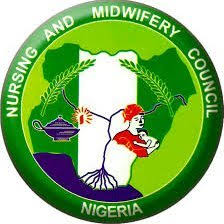The Lagos State Commissioner for Health, Prof. Akin Abayomi, has cautioned residents against panic over the recently reported outbreak of infectious Monkeypox disease in the state. Abayomi spoke on Friday in Lagos at the biosecurity update meeting on the situation report of Monkey Pox disease in the state.
The commissioner said that three suspected cases of monkeypox were reported by health facilities in the past one month noting that the cases were positive for Monkey Pox as revealed by reports of laboratory investigation.
“The patients were treated at the specialised infectious disease isolation centre of Mainland Hospital, Yaba, and they have since recovered and discharged. “The close contacts and family members of these cases were actively monitored for 21 days for any development of signs and symptoms of monkeypox and none of these contacts developed any symptoms,” Abayomi said in a statement. The commissioner said that the state government, in collaboration with the Federal Ministry of Health through the Centre for Disease Control, was maintaining relevant surveillance activities in all local government areas to prevent an outbreak of the disease.

He explained that the state Epidemiology and the Monkeypox focal persons from the Nigeria Centre for Disease Control had earlier carried out sensitisation for clinicians and community members in some local government areas three months ago. Abayomi urged residents to observe the highest possible standards of personal and environmental hygiene, especially through regular washing of hands with soap and running water and attention to environmental exposure.
He also advised health workers to ensure that they take universal safety precautions when dealing with patients, saying that appropriate personal protective clothing must be worn when attending to cases of contagious infectious diseases. “Health workers are advised to observe universal safety precautions when dealing with patients and report any suspected case of monkeypox to the Medical Officer of Health in their local government or the Directorate of Disease Control through these lines: 08023169485 and 08023377487,” Abayomi said.
The commissioner explained, “Monkeypox is a rare viral infection of animals which could be transmissible to man and caused by Monkeypox virus.” According to him, the symptoms in human is similar to those seen in chickenpox patients though less severe. “It occurs primarily in Central and West Africa close to the tropical rain forest where there is frequent contact with infected animals,” he said.
Abayomi explained that Monkeypox could be transmitted by direct contact of persons with the blood, bodily fluid, cutaneous or mucosal lesions of infected animals; handling of infected monkeys and rodents such as West African giant rats and Squirrels, being major reservoirs of the virus. The commissioner also said that the disease could also be spread through human to human transmission through close contacts with infected respiratory secretions, skin lesions of an infected person or object recently contaminated by patient’s fluid or lesion materials; eating undercooked meat of infected animal and transmission to the unborn baby through the placenta.
Abayomi said Monkeypox could be suspected in any person presenting with a pustular rash and one or more symptoms of fever, chills, sweats, headache, backache swollen glands sore throat, cough and shortness of breath. “In the early phase of the disease, patients usually present with fever, swelling of lymph nodes, back pain, intense headache, muscle pain and lack of energy.
“The late phase, skin rashes or lesion with a flat base develops between three days after the onset of fever which later forms small fluid-filled blisters. “This fluid later becomes pus and then crust in about 10 days,” he explained. The commissioner said that there was no specific treatment for monkeypox, adding that the patient would recover after the symptoms subsided between two to three weeks. He also advised that precaution should be taken when coming into contact with wildlife such as monkeys or rodents, especially if such animals exhibit features of the disease.
ABUJA: Training Schedule for Basic Life Support BLS, Pediatric Advanced Life Support (PALS), Advanced Cardiovascular Life Support ACLS, First Aid, CPR, AED
PORTHARCOURT: Training Schedule for Basic Life Support BLS, Pediatric Advanced Life Support (PALS), Advanced Cardiovascular Life Support ACLS, First Aid, CPR, AED
LAGOS: Training Schedule for Basic Life Support BLS, Pediatric Advanced Life Support (PALS), Advanced Cardiovascular Life Support ACLS, First Aid, CPR, AED
STOP paying for airtime and electricity, Let your phone pay its bills with ScreenT




